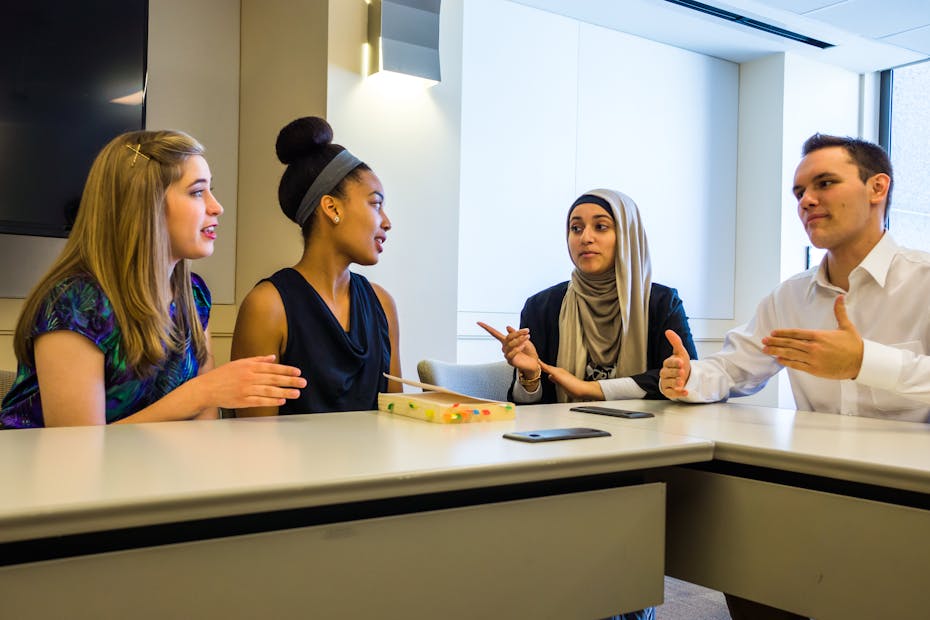
Over the last year, public events have drawn attention to the persistent reality of systemic racism and colonialism across North America.
Universities in Canada are paying increased attention to questions of Indigenization, anti-racism, equity and inclusion. Many initiatives are focused on representation and on policies and procedures. These efforts are necessary.
At the same time, universities can do more. We can start to view education as an opportunity and obligation to empower students who graduate with the capacities needed to contribute to an equitable world.
Asserting that university education can address questions of equity rests on a central assumption: that all education is consequential, and bears on how students imagine themselves in the world. Some university educators might claim that universities cannot and should not indicate a preference or leaning toward certain values or political positions. However, we see education as part of a much broader framework.

In teaching a course, instructors make a range of judgments: what course material to teach, whether or not to link course material to social practices and how to position students in relation to the world around them.
Through these decisions, faculty members communicate to students what material is worth learning, its relationship to public concerns and the student’s connection to the world beyond themselves. Faculty members do not choose to “opt into” these concerns. All teaching informs what students see as important, and how they understand themselves as part of the social fabric, with various obligations and commitments.
Four additional assumptions are critical to this understanding of higher education. First, we are always ethically implicated.
Our choices matter. In the context of systemic racism and colonialism and other forms of inequity, our choices can in some cases reinforce the status quo, in other cases resist the status quo — and at times do both. Second, as recent events have underscored, inequity and injustice exist. We live in a world and in a country in which systemic discrimination is both widespread and deep-seated.
Third, power matters. Access to resources and decision-making bears on how communities reap benefits or experience harm. Lastly, particularly in North America, there is an aspirational societal commitment to the public good and to justice. Many commentators, social movements and political leaders are pointing to the urgent importance of equity and reducing systemic discrimination now. Together these calls articulate broad aspirations for realizing societal commitments to the public good and to justice.
Universities provide an environment in which to work together at imagining, and engaging, the world in which we want to live. Students and instructors not only cover “course content,” or the central conceptual underpinnings of various disciplines. University education imparts possibilities for how graduates orient themselves to the world around them, how we might live as “associated individuals.”
For example, engineering students may learn how to apply knowledge about engineering to improve roads in particular communities. Students in health disciplines may learn how to use their education to ensure equal access to care. People studying law may have the opportunity to learn how to use their degree to contribute to a criminal justice system that does not protect one community while doing violence to another. Conversely, students in any of these scenarios could be educated in ways that lead them to very different choices.

In a world in which injustice and inequity are commonplace, universities can play a much more proactive role in addressing systemic forms of discrimination, and in contributing to a world where all students will want to live.
Some educators hold onto the idea that the classroom ought to be “neutral,” or wholly detached from public life, and robustly deny the proposition that university education shapes how students think and act.
We reject this idea. Not only is it impossible to avoid the ways in which education shapes students’ understanding of public life, it is also a significant missed opportunity.
Universities are places to work at a different world, to grapple with questions of what it means to live well, together. Knowledge acts in the world and has consequences for how people live.
We support the work across universities in North America that is attending to discriminatory policies and procedures. Alongside these efforts, we ask more of universities and of ourselves and our colleagues. Universities in Canada are public institutions. To best serve the public, faculty and administration will do well to identify and integrate the capacities students will need to contribute to justice and equity in public life.![]()
Jennifer S Simpson, Provost and Vice-President, Academic, Ryerson University; Sulaimon Giwa, Assistant Professor and Associate Dean of Undergraduate Programs, Memorial University of Newfoundland, and Verna St Denis, Professor, Educational Foundations, University of Saskatchewan
This article is republished from The Conversation under a Creative Commons license. Read the original article.










